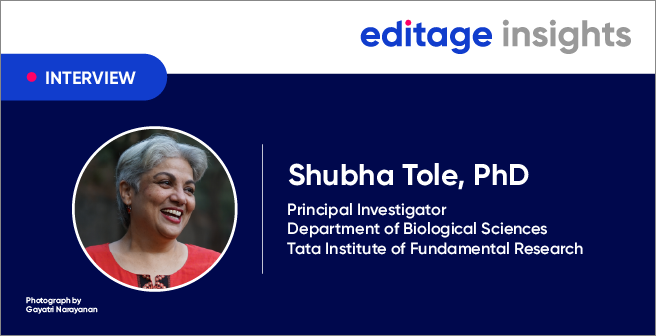Am I making any progress in my PhD?

Last weekend, my husband frowned and turned to me in the middle of watching ‘Gordon Ramsey’s Kitchen Nightmares’ one night. He wanted to ask a question: “Are you making progress in your PhD? I mean, it looks like you’re progressing awfully slow.”
My first response was to shrug. For context; my husband works in the medical field, where the turnaround for research projects is a matter of weeks, rather than months or years. To me, it made sense that my medical-industry partner would see my work as slowly progressing, particularly looking in from the outside.
Then, I was annoyed.
I began my PhD, officially, six weeks ago. I’m beginning Week 7 on Monday, and what I’ve achieved in those six weeks is far from ‘progressing awfully slow’. At the time, I vividly recall standing awkwardly in the school admin office, ready to enrol, and wondering how the hell I’d start this mountainous project. There was so much to do, so much to know; so where do I start? I’d just finished my Honours year; yet despite a 6-month intensive research project, I was floundering. I did well – exceptionally well – but I attributed that to the help of the professionals I had asked to work with me, not my own abilities. Impostor syndrome was strong, and when I walked into my supervisor’s office ready to be handed a near-impossible task, I was ready to be blown away with how little I knew.
I was pleasantly surprised.
After researching in the field for 6 months – intensively reading, summarising and writing on the topics of Management, HR, Greenfield sites and Hospitals, I actually knew a bit. Not everything, but I certainly knew quite a bit. Enough, certainly, to enter into a dialogue with my professor based on my expertise.
Imagine that! I had expertise, and that realisation was SO refreshing.
So, in the course of 6 weeks, I had actually progressed quite rapidly for my professor. I had read, summarised, tabled, and filed over 70 peer-reviewed papers; written and submitted 2 of my own for publication; and spent my idle hours on Twitter networking, rallying interest in my project, and advertising to stakeholders. Interest has grown and grown; and in the space of 6 weeks, I amassed over 87 people following my project, including people who will potentially hire me for my ‘expertise’ in the field. In addition, I’ve produced 2 drafts for the Introduction section of my thesis, created a mind map of the theories I’m using, and even typed up summaries of different theories that I’d found during the course of my reading… 3 separate times, for 3 different people who expressed interest in my work. I may not be working in the field yet, but by any measure, I have been productive.
No matter how I framed this work, my partner wasn’t convinced. He’s one of the better practitioners in his field, handling a large number of patients and their files every day on top of conducting his own research. His standards for ‘productivity,’ exactly, are very different due to the nature of his field. (I later learned that this was indicative of clinicians’ perceptions of other fields and is quite typical. It’s a culture thing, and it permeates how doctors interact with others).
He didn’t appreciate my work and my progress until he tried to study my field for himself. In order to improve as a practitioner, he elected to do a management unit. Now, a disclaimer: My partner is incredibly loving and supportive and didn’t mean to seem like he was de-legitimising my work, but he’s one of those people who learn better through experience. At the conclusion of his management unit, he turned to me with a hug and said, “That was one of the hardest things I’ve done for a long time.”
His struggle was attributed to his lack of knowledge and the vagueness of the field in general. Coming from a medical perspective, he said, there was little guidance, and the field hardly agreed on anything. He couldn’t prove anything because there simply weren’t studies with evidence that he was used to. No evidence, he said, no clarity. Making anything from that research was apparently a huge task, as it required a lot of synthetization of literature and deduction. “No wonder it feels like your progress is slow!” he admitted, “You have to do SO much behind the scenes!”
Now, this isn’t an anecdote about a woman overcoming the criticism of a man in a male-dominated industry. This isn’t even a tale about ‘how to make your work legitimate.’ This is a recount of where I started, how I began, and how my work looks from the outside. It looks slow, with little to show for my work, and a lot of uncertainty. But, as I learned, that’s exactly what a PhD in business looks like!
I began by reading – reading some, and then some more, and documenting all my thoughts, quotes and deductions. Drawing links, thinking about it, and then reading some more on a related topic. I have lists and lists of the topics I’ve read to try and start this project with the right theories, and all I have to show for it is a large Endnote file, and a few Word documents’ worth of notes. Far from being unproductive, I set the foundation for what is now looking like a ‘kick**s project’ (more details to come).
It was an eye-opening exercise; seeing the perspective of people ‘on the outside’ while I’m in the thick of it. It has made me a better researcher, I think. Now I can understand how I’m perceived by the community – particularly the medical community. It will help me pitch, frame and communicate my work a little better and give me a rare opportunity to address some larger problems in working culture that other people never come across.
And I’m not going to lie. Experiencing my partner’s frustration in attempting my work was a little entertaining, too.
Madeleine Kendrick (@MIKendrick94) is a PhD candidate (Scholarship Recipient, Full-time), an Academic Research Assistant, and a Business Consultant. This story was published on June 2, 2017, on Madeleine’s blog, Research & Beyond (available here), and has been republished here with her permission.




